Guest blog post by Kristin Canty, owner of Woods Hill Table in Concord, Mass.
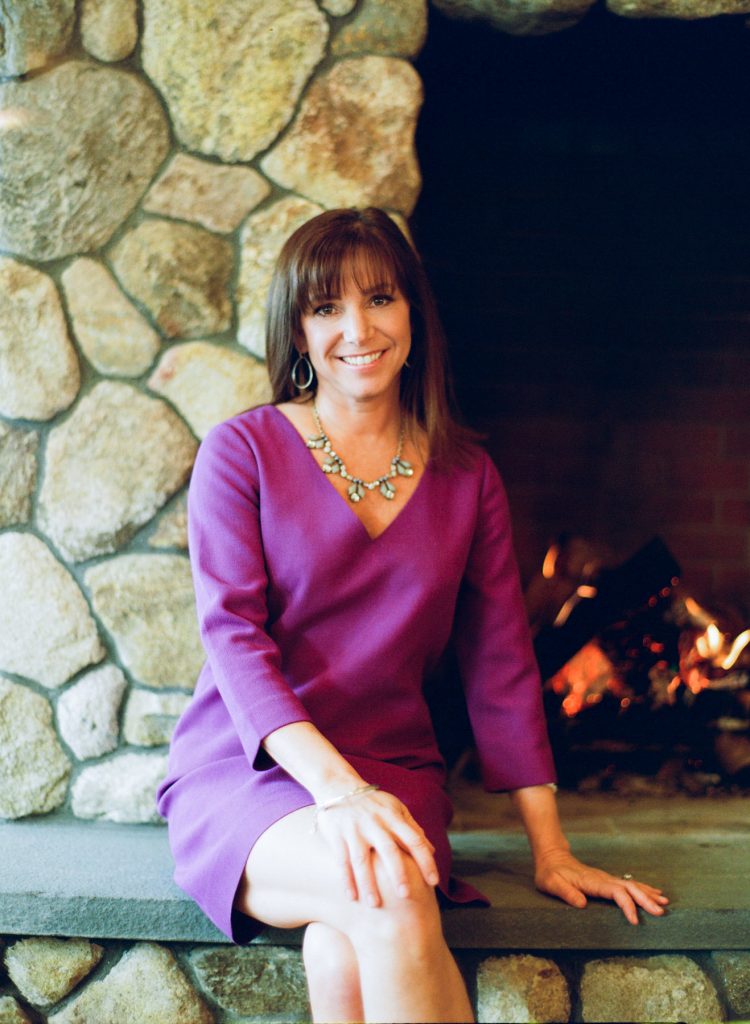
Kristin Canty established The Farm at Woods Hill to provide for her restaurant, Woods Hill Table.
Woods Hill Table is a full service restaurant I opened in my hometown of Concord, Massachusetts. We have 150 seats, that includes a 16-person private dining room, a 20-seat patio, a 20-seat bar and a 6-person oyster bar.
I was extremely concerned with sourcing enough food that was raised/grown the way I wanted it for a restaurant with so many seats, so I was lucky to hire Tim Wightman, from the Farm-to-Consumer Foundation and longtime Weston A. Price Foundation member to consult and help me source food for the restaurant. He quickly informed me that I would not be able to find enough pastured meat for a restaurant of our size, and that I needed to buy my own farm if this restaurant was going to actually serve grassfed beef.
We found a 260-acre farm in Bath, New Hampshire that had only been used as a maple syrup farm, and a gentlemen’s farm. Tim started the farm and spent two years getting it up and running. He hired Farm Manager extraordinaire Amber Reed, who was very excited to raise rotationally pastured livestock. We currently have around 37 head of cattle, 83 pigs (including our own eight breeding sows and one boar), 2,200 broiler chickens, 330 layer chickens, 20 sheep, 20 lambs, four goats and 12 ducks that we use for eggs. The farm was up and running for about a year when we opened the restaurant in March, 2015.
We have supplied most of the meat from the farm, which we named The Farm at Woods Hill. We don’t have enough steak to meet our demand for the grassfed steak, so I am able to purchase it from US Wellness meats. We get some of our flour from Four Star Farms in Massachusetts, and we get our vegetables from local farms all around us. We are buying such high quantities for the number of people we feed every night, so one of the most rewarding aspects of this has been that farmers have told me how great this restaurant has been for the financial health of their farm.
I was also extremely lucky to hire an amazing Chef to lead the restaurant, Charlie Foster, who was the Executive Chef at a very popular restaurant in New York City. I brought him to two Weston A. Price conferences and Sally Fallon Morrell’s talk so he could learn the food parameters, and within those parameters he has complete creative control of the menu and the food. He appreciates the integrity of the food and the high quality of the ingredients I want him to use, as he is already a great chef and being forced to use high quality ingredients only helps the food to taste better.
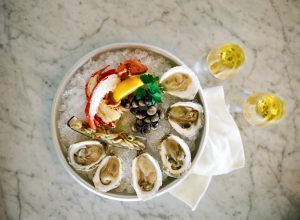
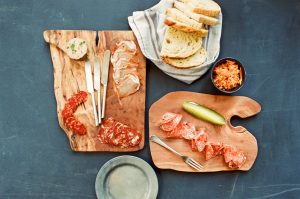
We make everything from scratch, butcher our own meat and filet our own fish, our cheese plate is all raw. We can’t use any other raw dairy products, however, the milk is from High Lawn Farm in Massachusetts and pasteurized at the lowest temperature allowed–not ultra-pasteurized. The cream is not homogenized, and the butter is cultured.
A highlight of our dining room is the raw bar, where you will find two cooks shucking raw oysters, raw clams, making crudo, ceviche and tartare, and slicing our housemade charcuterie and patés (from our own animals) with a beautiful big red Berkeley Slicer. We make all of our own sauces from scratch, we have kombucha, unpasteurized beer, organic and biodynamic wine and spirits, and we purchase a lot of produce from local farmers for the restaurant and for the bar.
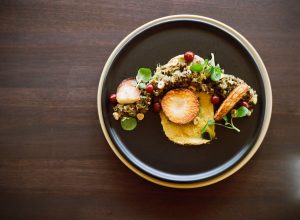
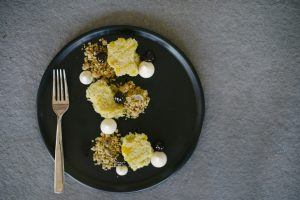
We compost, recycle, and use only sustainable products. We have metal straws and picks and compostable take out containers. We have family meal for our staff every night before service, and this meal consists of meat from my farm and fresh organic vegetables. We offer health insurance to all of our full-time employees, and we have a few other perks such as an annual farm overnight and a large Christmas party. We treat the animals well, the people well, and we hope that this contributes to our staff and our customer’s health.
There are a number of challenges to opening this kind of restaurant. My staff works incredibly long hours to make this come to fruition and to serve the volume of people that we serve. Finding motivated and dedicated people to raise the animals rotationally pastured on the farm and people that want to prepare everything from scratch, is not an easy feat and we face labor challenges every day at the farm and at the restaurant
Another one of the biggest challenges is sourcing the right fats and figuring out how to use those fats in a restaurant setting. For sourcing, I have been lucky to use US Wellness Meats for the beef tallow and we go through a large amount of it cooking our french fries. Cost effectively sourcing organic olive oil was impossible until I found Centra Foods, who matched the price of the lower level olive oil cost as long as I purchased a pallet of it.
Aside from the issues involved with operating a restaurant and farm on this scale, I am very happy with how everything is going and very proud to be able to feed my community traditionally prepared foods.
I ate here in August of 2015 and it was fantastic! I was traveling to Maine but made a stop so we could meet a friend and eat here–totally worth the side trip.